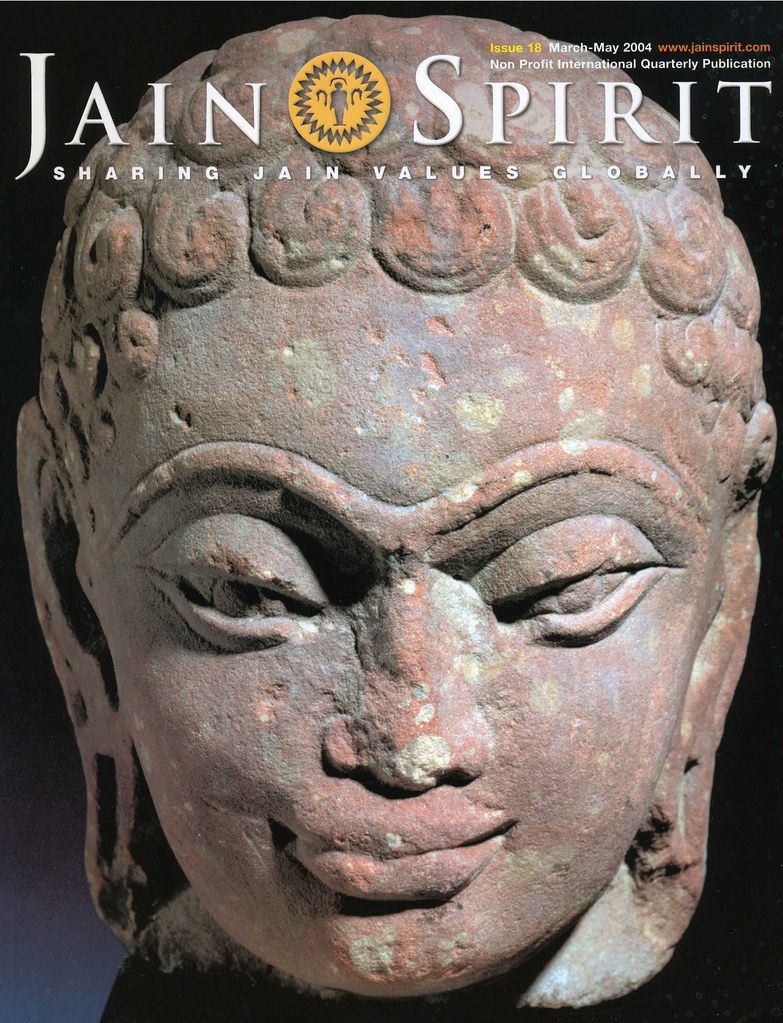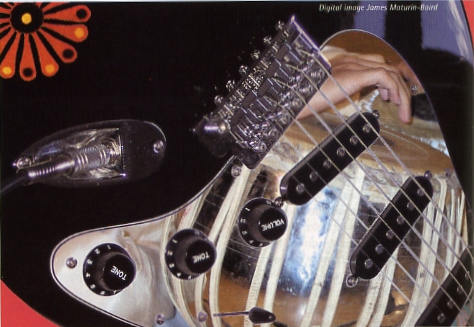 Jain Spirit magazine - A non-profit International Quarterly Publication - #18 (2004-2). Photo - Bridgeman Art Library: Jain Head, 6th century AD, Mathura region, India.
Jain Spirit magazine - A non-profit International Quarterly Publication - #18 (2004-2). Photo - Bridgeman Art Library: Jain Head, 6th century AD, Mathura region, India.
Music has come a long way. Just as the human race is evolving, so is music. In today's fast moving world, many rare forms of music have been introduced to the East and the West. When these rare and ancient traditional music forms are explored and indeed mastered, there comes a stage where one begins to look beyond the boundaries. Combining artistically stimulating inspirations from one genre of music with another, one is making new mixed styles and creating a crossbreed or so-called fusion music.
Indeed, musicians have been exchanging knowledge across national boundaries for as long as there has been contact between cultures. For instance, flamenco music is said to be a product of the cross-cultural exchange that resulted when the Cale people migrated from India to Andalucia in Spain. However, what is new in this modern world is the conscious decision by some artists to make cross-cultural music in an effort to show how people from different cultures can grow by learning from each other. As this planet becomes more aware of itself as a global village, a growing number of musicians are experimenting with new combinations of world music styles.
This can only be possible when each musician has the utmost regard for the other's musical talent and tradition. This is why I feel that the Jain principle of multiplicity of viewpoints (anekantvada) is highly relevant to contemporary fusion music. Without curiosity and respect for other viewpoints, there would be no crossovers, and listeners would be unwilling to listen to music other than their own traditional one or that, which they have been predisposed to.
One of the greatest sitar maestros, Pandit Ravi Shankar, was amongst the first to popularise the great Indian classical music tradition in the West in the 1960s; most famously through his interaction with the British pop group The Beatles. In subsequent years, the sarod maestro AN Akbar Khan, and the tabla maestro Alia Rakha, the father of Zakir Hussain, also worked with Western musicians. Tabla maestro Zakir Hussain and guitar legend John McLaughlin took the world by storm in the mid-1970s with their fusion of Indian classical music and jazz. Their band was called Shakti, which means energy in Sanskrit. Together they created music that was singular because of its plurality. While improvisation is the hallmark of both traditions, allowing for each artist to express himself, the roots are not forgotten. The result is a spellbinding musical conversation.
Musical fusion is an increasingly popular trend. All over the world, ancient traditional folk songs are being heavily re-mixed by the hip-hop, RftB and dance industries - even Britney Spears' new album is laced with banging bhangra beats.
As dynamic and innovative partnerships are forged between rich musical traditions, one is able to make new fusion music that is always on the move; that which continues to surprise and excite. Fired by the spirit of discovery, freshness is a key element. Through such interaction between musicians (and their listeners) there comes a life of friendliness and harmony; a life of non-violence and equality. My hope is that it will touch almost every aspect of life and usher in a total change in the outlook, thought and action of society the world over. I believe that fusion music can be an integral part of a balanced and effective approach to solving the problems mankind is facing today. I believe that it has the potential to facilitate the emergence of a new multi-faceted society.
Punit Haria is a qualified optometrist, an accomplished tabla player and a keen traveller. He lives in London, and is an active member of Young Jains UK.
 Punit Haria
Punit Haria